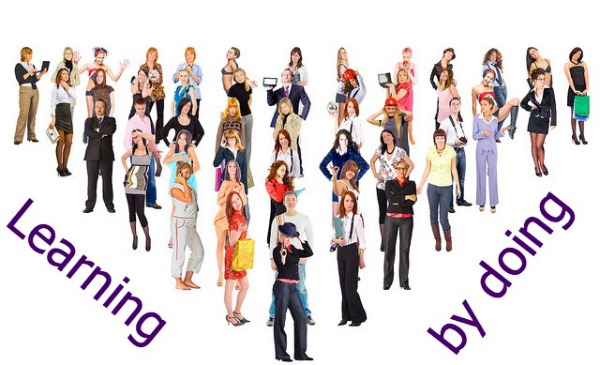FAQ: Is role play really necessary in sales training?
Everyone has a different learning style and what works well for one person may not work so well for the next.
Which learning styles are there?
The 3 basic categories of learning styles are:
- Visual: learning most effectively through images, colour and other visual stimulus via handouts, slides and diagrams.
- Aural: learning most effectively through hearing information rather than reading it or seeing it visually.
- Kinaesthetic: learning most effectively through experience – touching, moving and doing in experiences such as role play.
How can everyone benefit from our sales training?
At LiveseySolar, we try to ensure that everyone’s learning styles are catered for in our training session. This means that we use a mixture of slideshow presentations and handouts, spoken instruction and role play in sales training, which covers all three of the major learning styles.
We’ve found that even those people who are predominantly visual or aural learners benefit greatly from role play. Experience has taught us that Aristotle was right when he said: “For the things we have to learn before we can do them, we learn by doing them”.
What is experiential learning?
Experiential learning is the process of learning by doing and is something that we all take part in in everyday life. For example, while we may learn the theory of driving from a book or being told about it, it is only through actual physical practice that we can learn to drive.
Learning through direct experience can be a very powerful teaching and learning tool. When we experience something for ourselves, rather than just reading about it or observing it, we are involved personally with the process and obtain a much deeper understanding of the principles and concepts at play.
Why role play?
A study by Staffordshire University into the impact of role play as part of a training programme, showed that role play had the following positive benefits for those who took part:
- Increased self-confidence and self-efficacy
- High level of engagement in learning
- Makes theoretical concepts tangible
- Provides practical strategies that can be applied in real life contexts
- Provides access for learners of all learning styles
- Gives the learner ownership and responsibility for their own learning
- Increases depth of learning over that learned by other methods
- Makes learning stretching, challenging and safe.
Role playing can also help to make staff feel more valued and helps everyone within an organisation to more fully understand everyone’s roles. Participants become more aware of the impact their behaviour has on customers and other staff, and this can be explored in a risk-free environment.







[…] apply new information. The teams that perform best after sales training took at least one day to role-play and practice the process amongst each other before applying it to actual […]
[…] of the best parts of trainings for participants is the feeling of confidence they get after performing role-plays. The atmosphere of a role play is one that expects and even encourages mistakes. This kind of […]
[…] calls its staff “cast members,” thus assigning even janitors or fast-food servers a “role” in the show. Visitors are “guests,” not […]
[…] Role play is a good way of practicing the right amount of eye contact during a sales interaction. […]
[…] only more people in customer service and sales roles would focus real energy on leveraging the power of […]